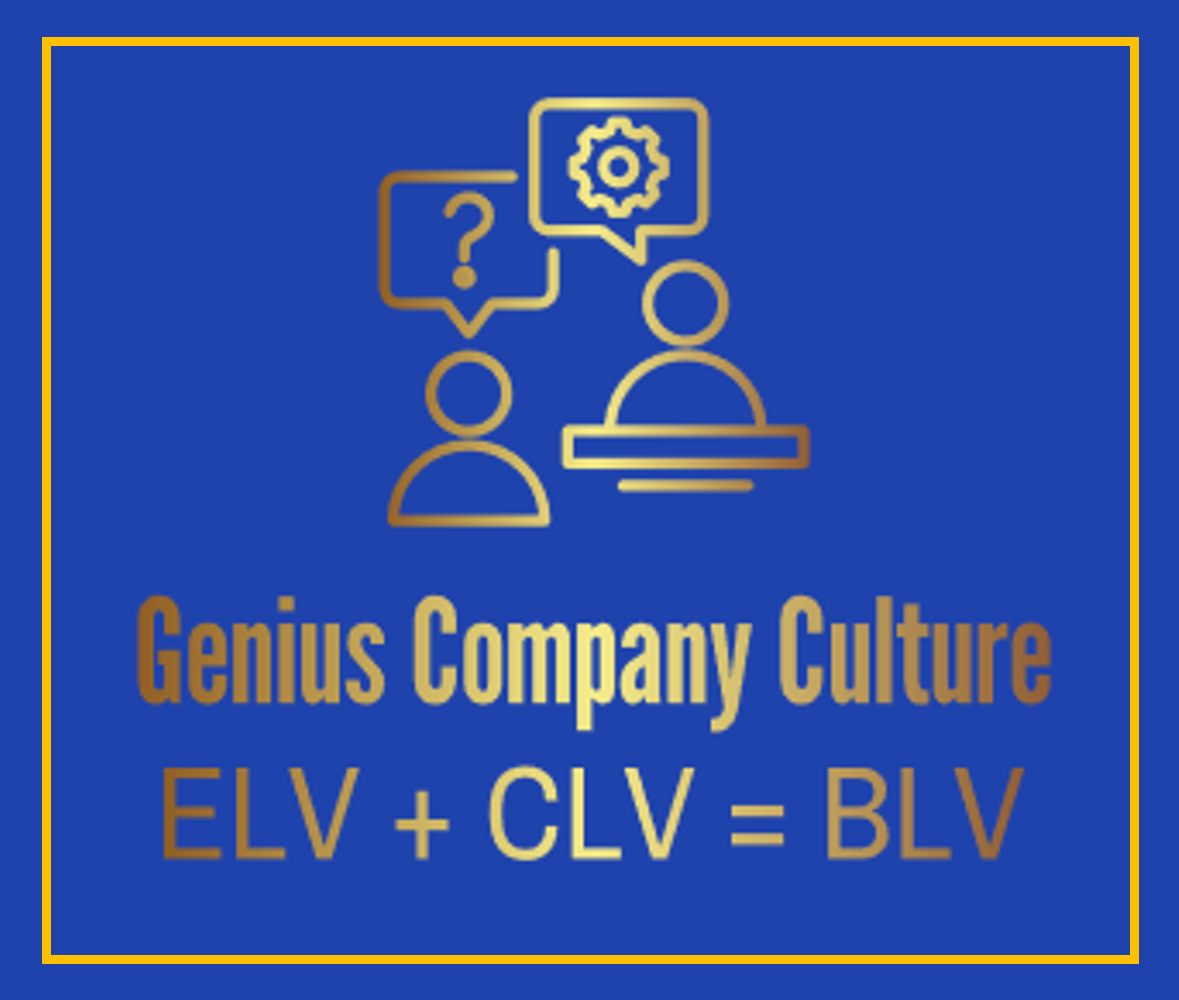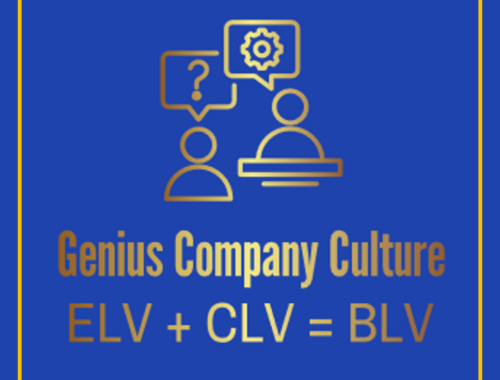
A Labor Shortage? It’s Your Fault!
It is inevitable that corporate America will one day wake up to a real understanding of what the heck is truly going on! Give me a chance to illustrate the matter.
The problem stems from the facts that: 1) we are a product of past thinking, 2) everyone resists change if it significantly affects them, and 3) the pace of technology has left our antiquated business models in the dirt.
Let me ask you some questions, first. 1) What makes us stay with our spouse or significant other? 2) What is the central focus of mainstream business? 3) What do you think about when analyzing the term “work”? 4) What is the inside reason why we are experiencing the “resignation era”? 5) Why is it human nature to point our fingers outward, instead of first pointing that finger back at ourselves?
Okay, here are my responses to those questions:
- We stay with our spouse or significant other because of love, of course, but love means more than just one thing, right? We get “nourishment” and “enrichment”, and a whole host of meaningful things from those that we love. They add real meaning to our life.
- The central focus of all business in all decades of the past is: MONEY! The bottom line!
- What do people think of the term “work”? It’s a negative for the bulk of the masses! Work has a bunch of negatives that give the term “work” a negative stigma. Our alarms wake us before we want to get up. We don’t want to leave the comfort of our homes. Most of us have a commute. Lots of jobs mean working with people we don’t necessarily like. We go to work because we have no choice if we want to have money to live and insurance and other ‘benefits’. For many, work is mainly a dead-end street.
- Obviously, the pandemic has given people ‘permission’ to stay home. Suddenly we don’t have the negatives of going to work. Now we have a choice; given that choice, we would prefer to be at home. But it’s a little more than just that. I’ll come to that in a moment.
- It’s just easier to point the finger elsewhere, rather than back at ourselves. It’s easier to place the blame (for whatever) elsewhere. Our corporations are no different. After all, our companies are just individual people and not immune from being human, right?
Are you beginning to see where I am headed here?
We are facing an inevitable “Neo Renaissance of the Individual” person. Due to a prevalent short-term vision – an inaccurate focus – the importance of the individual is slowly being left behind, ignored, overlooked. An extreme example is robotics taking the place of workers.
Technology is wonderful, don’t get me wrong! But…if we fail to understand the effects of technology, those effects could become a danger to us all. Can we have that kind of objectivity and foresight?
Our home lives give us more meaning than we get at work.
We see our companies and our employers as having a focus that is not necessarily on us as individuals and what gives our lives meaning. In the end, our employers are not much more than a paycheck, or a remuneration package. Going off to work is a big negative and that has been the general attitude and perception for too long.
This current COVID pandemic has changed the work landscape for employees, but if we look at it more closely – and point the finger back at ourselves – the pandemic exposes the mistake we are making in our business philosophy each and every day.
Every corporation needs to embrace the “Neo Renaissance of the Individual”. All of our business models must evolve with the rapidly changing times and open their minds and hearts to giving their people – their valued staff members – much more meaning in their lives.
There is slow movement towards changing the paradigm of “Customer Service” in business operations. We are seeing that the “lifetime value” of the customer must be the focus, simply because it is the (long term) profitable and right thing to do. We are starting to give our customers more meaning for loyalty in their patronage. In a sense, we are “rounding out” the customer experience by adding more meaning and value to the customer as individual people. We are demonstrating the importance of each of our customers.
Well, what if we had been doing the same thing for our “employees” all along? What if we had been giving each individual that works for us much more meaning in their lives? What if we had been clearly demonstrating our caring about the importance of each person in serving our business? And hey, what if we were also benefiting from the collective minds of our people in objectivity and solving the issues that the company is facing and will face? To get that sort of input from our people – if done systematically, in an orchestrated, deliberate system – would also illustrate that we as a company value them for more than just their work efforts.
What if our corporate world – as a whole – had been continually and relentlessly concerned about the “lifetime value” of our own people, and clearly demonstrating that caring? What if our companies had been building an entire culture – an actual department/division of our business – that is dedicated to the “rounding out” of the lives of our people?
We would have no labor shortage. Our people would want to return to work. Over and above that, each individual would have an intrinsic motivation level to perform their best each day for a company that adds real meaning and value – aside from (or over and above) the remuneration package – to their lives.
Are you hearing and understanding the sense behind this approach?
Now please understand: this “Revenue-Generating Culture Center” cannot just be thrown together. It cannot just exist on paper. It must have a deliberate structure, directives, agenda, infrastructure, and so on. And it must never stop paying for itself and more.
For example, there would be one Culture Facilitator for every 20 staff members. These Culture Facilitators – each with their own caseload – would be mainly dedicated to knowing as much as they are told (by each person) about the lives of each individual in their caseload.
The Culture Facilitators then are doing searches online and researching the top items in each person’s case; they would find various media, events, training, and so forth online that will enrich – and maybe even help resolve issues in – the lives of each person in their caseload. The Culture Facilitators are then sending these search results to each person in their caseload, all of the time. They are also acknowledging birthdays, anniversaries, and so much more.
There’s an incredibly profound depth to this proposal. As an example, the Culture Facilitators would be mandated to pick the brains of the individuals in their caseload about resolving company issues, adding new revenue streams, cost cutting suggestions, and ideas of value for the company.
These collective Culture Facilitators would have meetings with the Culture Coordinators (which are their immediate supervisors) wherein they discuss the individuals’ needs, ideas and much more.
The Culture Coordinators would take the data collected by the Facilitators and assimilate into propositions for the company, feasibility studies based on ideas, and many other items of value.
At the top of the “RGCC” is the C-Suite level individual, called the Chief Culture Officer.
A fairly recent trend in corporate (short-sighted) America is to add a “CXO” (a Chief Experience Officer). But this is one-sided and only focuses on the lifetime value of the customer, in my opinion. However, a CXO candidate might make a great Chief Culture Officer perhaps.
Certainly, I can see the “objections” to this revolutionary – scary – RGCC concept. First might be: what is the cost of such a thing? This is old-school thinking. The better question is: Understanding that all new creations take time to “rev the engines, go down the runway, gain speed enough to get off the ground, and gain altitude”, how long will it be before this department pays for itself?
The Cost/Benefit becomes all Benefit! Once in full swing, the RGCC pays for itself: 1) Because all of the staff is suddenly intrinsically motivated, 2) each RGCC has a “think tank” whose focus is generating more and new revenues, solving issues – now and in the future, rounding out the lives of each individual, and 3) using the power of the collective minds of all people in the company… and so much more!
In closing, corporate America (in the spirit of the American Culture) must focus on the individual person, both inside the company and outside the company (patrons/vendors). If we focus on the individual person – by adding a Revenue-Generating Culture Center – the bottom line will take off, issues now and in the future can be handled by the collective minds, corporations will become forward-thinking and objective, and longevity and prosperity will be ensured. In this Tech Age, there must be a Neo Renaissance of the Individual, which will balance the effects of the Tech Age.



